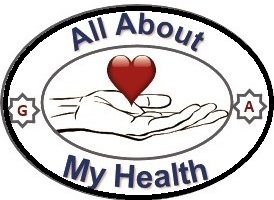Introduction
For decades, Attention-Deficit/Hyperactivity Disorder (ADHD) was considered a childhood condition—something kids would “grow out of.” However, research now shows that ADHD persists into adulthood, often evolving rather than disappearing.
Millions of adults navigate life with undiagnosed ADHD, frequently mischaracterized as “scatterbrained,” “lazy,” or “anxious.” Even more concerning, many struggle with comorbid conditions—such as anxiety, depression, or sleep disorders—without realizing ADHD may be the root cause.
The good news? Awareness is increasing, research is advancing, and with the right strategies, adults with ADHD can thrive, not just survive.
This article explores:
- The realities of adult ADHD—beyond the stereotypes
- How comorbid mental health conditions complicate diagnosis and treatment
- Science-backed management strategies, including medication, therapy, and lifestyle changes
- Practical tips for work, relationships, and self-care
Whether you suspect you have ADHD, were recently diagnosed, or support someone who does, this guide will help you take control of your mental health.
Section 1: Understanding Adult ADHD
1.1 What Does Adult ADHD Look Like?
ADHD in adults goes beyond trouble focusing—it is a neurodevelopmental disorder that affects multiple aspects of daily life:
- Attention: Easily distracted but also capable of hyperfocus on interests
- Impulsivity: Interrupting conversations, impulsive spending, or making risky decisions
- Emotional Dysregulation: Quick frustration, heightened sensitivity to rejection
- Executive Dysfunction: Chronic procrastination, disorganization, difficulty meeting deadlines
Unlike children with ADHD, adults often develop coping mechanisms—some helpful, others detrimental.
Example: A high-achieving professional may excel at work yet struggle with daily tasks like managing bills or responding to messages.
1.2 Why Is Adult ADHD Often Overlooked?
Many adults with ADHD remain undiagnosed due to common misconceptions:
- “I did fine in school!” → Symptoms intensify with adult responsibilities.
- Gender Bias: Women are often underdiagnosed as their symptoms manifest as anxiety rather than hyperactivity.
- Masking: Many compensate by overworking, people-pleasing, or self-medicating.
Dr. Ned Hallowell, an ADHD expert, states:
“ADHD is a terrible name. It’s not a deficit of attention—it’s an inconsistent attention regulation system.”
1.3 The Hidden Costs of Untreated ADHD
Without diagnosis and treatment, adult ADHD can lead to:
- Career Struggles: Job-hopping, underemployment, or burnout
- Relationship Strain: Forgetfulness, emotional outbursts, and difficulty maintaining commitments
- Self-Esteem Issues: Feeling “broken” or “lazy” despite effort
Key Insight: ADHD is not a moral failing but a neurological difference. With the right tools, it can be managed effectively.
Section 2: ADHD and Common Comorbidities
2.1 ADHD and Anxiety: A Vicious Cycle
Over 50% of adults with ADHD also have anxiety due to:
- Chronic Overwhelm: Falling behind on tasks → panic about catching up
- Rejection Sensitivity Dysphoria (RSD): Extreme emotional pain from perceived criticism
Case Study: Sarah, 32, was treated for anxiety for years—until an ADHD diagnosis explained her chronic “brain fog” and procrastination. Treating both conditions changed her life.
2.2 ADHD and Depression: When Exhaustion Sets In
Decades of undiagnosed ADHD can lead to depression, often marked by:
- Feeling “stuck” due to executive dysfunction
- Shame over unmet goals (“Why can’t I just do it?”)
Fact: Stimulant medication for ADHD can sometimes alleviate depression more effectively than antidepressants alone.
2.3 Other Common Overlapping Conditions
- Sleep Disorders: Difficulty “switching off” at night
- Substance Use: Self-medicating with caffeine, alcohol, or drugs
- Bipolar Disorder: Misdiagnosis risk (mood swings ≠ ADHD emotional dysregulation)
Takeaway: Treating anxiety or depression without addressing ADHD is like putting a bandage on a broken arm.
Section 3: Diagnosis and Treatment Strategies
3.1 Getting Diagnosed as an Adult
Steps to Diagnosis:
- Take a screener test (ASRS-5 is a free, validated tool).
- Consult a specialist (psychiatrist, neurologist, or ADHD coach).
- Rule out other conditions (e.g., thyroid issues, sleep apnea).
Pro Tip: Bring childhood report cards to your evaluation—comments like “bright but distracted” can be valuable clues.
3.2 Medication: Myths vs. Reality
- Stimulants (Adderall, Ritalin): First-line treatment, not “happy pills.”
- Non-Stimulants (Strattera): A good option for anxiety-prone individuals.
- Side Effects: Appetite loss, insomnia (often manageable).
Important: Medication is not a cure—it is like “glasses for your brain.” Pair it with therapy for best results.
3.3 Therapy That Works for ADHD
- Cognitive Behavioral Therapy (CBT): Helps reframe negative thought patterns.
- ADHD Coaching: Offers practical life hacks (e.g., “body doubling” for tasks).
- Mindfulness Practices: Aid in emotional regulation.
3.4 Lifestyle Tweaks for Better Focus
- Exercise: Boosts dopamine (low in ADHD brains).
- Protein-Rich Breakfast: Stabilizes focus.
- External Memory Aids: Use phone alarms, sticky notes, and “don’t put it down, put it away” strategies.
Section 4: Practical Advice for Thriving With ADHD
4.1 Work Productivity Tips
- Time Blindness Fix: Use visual timers (e.g., Time Timer).
- The “Two-Minute Rule”: If a task takes less than two minutes, do it immediately.
- Avoid Multitasking: Work in 25-minute sprints (Pomodoro Technique).
4.2 Relationships and Communication
- For Partners: “ADHD is an explanation, not an excuse.”
- For Friends/Family: “I need help staying accountable—can we check in weekly?”
4.3 Success Story: From Chaos to Control
Meet Alex, a graphic designer who:
- Struggled with deadlines due to undiagnosed ADHD
- Got diagnosed at 28 and started medication + CBT
- Now runs a successful freelance business, leveraging ADHD strengths like creativity and hyperfocus
Conclusion: You Are Not Broken—You Are Different
ADHD is not a curse—it’s a unique operating system that requires specialized tools.
If you relate to this article:
- Take the ASRS screener (link here)
- Talk to a specialist (psychiatrist or ADHD coach)
- Join a community (r/ADHD on Reddit, CHADD.org)
Your brain isn’t “wrong”—it’s wired for creativity, spontaneity, and out-of-the-box thinking. With the right support, you can harness its power.
Additional Resources
- Books: Driven to Distraction (Hallowell), ADHD 2.0 (Ratey)
- Podcasts: Hacking Your ADHD, I Have ADHD
- Online Tools: Focus@Will, Goblin.Tools
